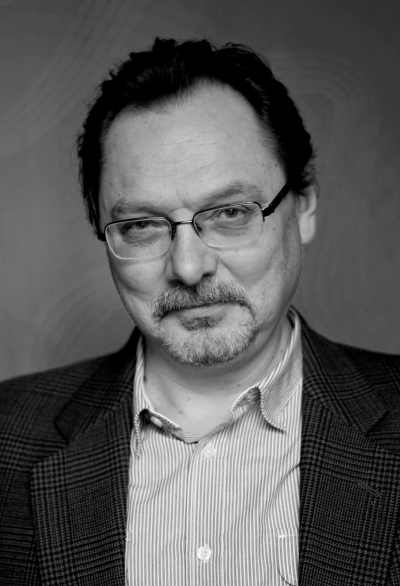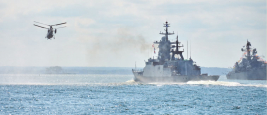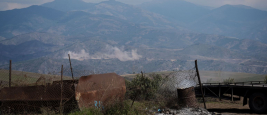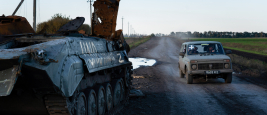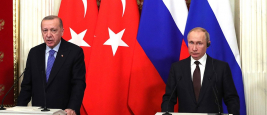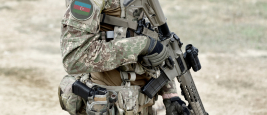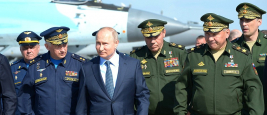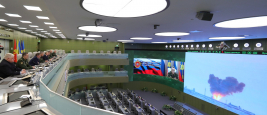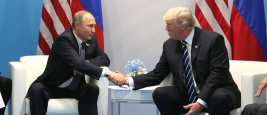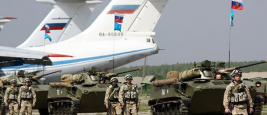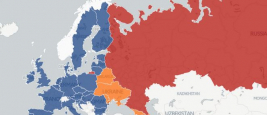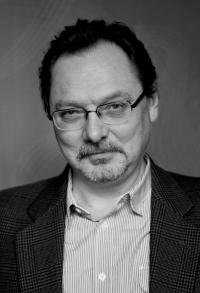
Pavel BAEV
Associate Research Fellow, Russia / Eurasia Center
Research Interests:
- Energy policy towards Europe and Russia’s place in the European security system
- Russia-EU dialogue and Russia-NATO Relations
- Energy geopolitics and Russia’s interests in the Caspian Sea; Russian policy in the Arctic
- Russian defense posture and military reform
- Conflict management in the Caucasus and the Caspian Sea area
Pavel BAEV is an Associate Research Fellow at Ifri's Russia / Eurasia Center, a Researcher and Professor at the Peace Research Institute, Oslo (PRIO), and a Senior Non-Resident Fellow at Brookings Institution, Washington DC.
After graduating from Moscow State University (MA in Political Geography, 1979), he worked in a research institute of the USSR Ministry of Defense; received a PhD in International Relations from the Institute for US and Canadian Studies, USSR Academy of Sciences (1988), and then worked for the Institute of Europe, Moscow. He joined PRIO in October 1992. In 1995-2001, he was the editor of PRIO’s quarterly journal Security Dialogue, and in 1998-2004 was a member of the PRIO board. He writes a weekly column for the Jamestown Foundation’s Eurasia Daily Monitor.
The long war in Ukraine has brought a drastic geopolitical reconfiguration of the Baltic theater and a deep shift in the military balance between Russia and the North Atlantic Treaty Organization (NATO).
The tragic exodus of the Armenian population from the Nagorno Karabakh region has closed a chapter in the long saga of conflict between Armenia and Azerbaijan.
The blame for committing the blunder of starting the war with Ukraine is deservedly placed on President Vladimir Putin, but a single-explanation interpretation of the unfolding disaster is unsatisfactory.
The extraordinarily troublesome year 2020 tested many international institutions and bilateral ties, but few experienced sharper challenges than the complex relations between Russia and Turkey, which have a strong impact on crisis developments in Europe’s immediate neighborhood.
A full-blown war erupted in the South Caucasus last Sunday, September 27, and as the two belligerents — Armenia and Azerbaijan — mobilize their forces under martial law, no international authority is trying in earnest to stop the hostilities. The conflict over the disputed Nagorno-Karabakh...
Russian strategic culture is evolving fast, despite the consolidation of the ruling regime, which is maturing into a more rigid autocracy, whereby its ideological outlook becomes increasingly conservative.
The near imminent breakdown of the INF Treaty (1987) has strongly intensified political and public concerns about the failure of traditional arms control and the escalation of a new nuclear arms race.
The July 16, 2018, face-to-face between President Trump and Russian President Vladimir Putin is both entirely natural and extremely unconventional, very encouraging and deeply disturbing.
The struggle against terrorism is supposed to be one part of security policy in which Russia has every necessary capability and know-how, and its special services can draw on vast experience without encountering the legal and institutional constraints that often interfere with Western efforts....
Since the start of the Ukraine crisis in early 2014, the states of East Central Europe have become increasingly important targets of Russian economic, political and military pressure. Russia finds itself in the trajectory of geopolitical retreat on the Western “front”, and seeks to slow...
Nearly two and a half years after the Russian military began an intensive bombing campaign in Syria in support of Syrian President Bashar al-Assad, Russia is struggling to engineer a political solution in the war-ravaged country, analysts say.
President Vladimir Putin’s extra-heavy emphasis on new strategic missile systems in his March 1 address to parliament was quite unexpected and rather out of character.
The past several weeks revealed new details about the inner workings of the shadowy side of Russian foreign and defense policymaking. The revelations—focusing mainly on the ongoing investigation into Russian interference in the United States’ 2016 presidential election and the exposure of the...



